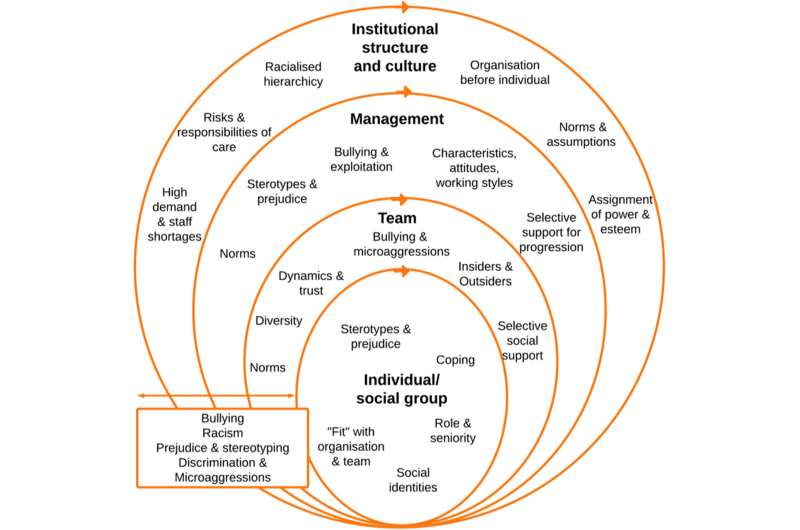buy generic hydrochlorothiazide no prescription k

The study, published in Sociology of Health & Illness, explores inequalities and discrimination experienced in healthcare settings and looks at London-based NHS staff’s workplace experiences of racism, bullying and harassment, and experiences of career progression.
First author Dr. Charlotte Woodhead from King’s Institute of Psychiatry, Psychology & Neuroscience (IoPPN) said, 150 mg tramadol for dogs “What we found was the very inequalities we were trying to tackle were being hampered by the culture which sustains such inequalities. Everyday experiences of bullying, harassment and discrimination means that in London there is a culture of high diversity but low inclusion for racial and ethnic minority healthcare staff”
Previous research completed by student and qualified nurses, midwives and healthcare assistants reported high levels of experiencing and witnessing discrimination and bullying. Former participants were invited to participate in in-depth interviews, conducted between January 2019 and February 2020. Analysis from the 48 transcripts found:
- The NHS is a hierarchical and pressurized working environment. Everyday interactions between staff, shaped by organizational culture, maintain NHS workforce inequalities experienced by ethnic and racial minoritized groups, and migrant staff groups.
- These groups are more vulnerable to workplace discrimination because they are over-represented at lower levels of the workforce hierarchy, and because of stereotypes and prejudicial views held by colleagues and managers.
- Within teams, staff who differed from colleagues in terms of race, ethnicity, migration, language or religion often did not feel included or valued because of bullying and micro-aggressions.
- Racial and ethnic minority staff reported having to work harder to climb the career ladder, feeling resigned to and tired of being unfairly treated. To cope, they reported strategies such as maintaining closer working relationships with those from similar backgrounds, moving teams to somewhere more supportive or leaving the organization altogether.
- This in turn perpetuated inequalities by affecting people’s ability and willingness to report and challenge experiences of discrimination, inhibiting career progression and reducing their satisfaction with work.
IoPPN Ph.D. student Nkasi Stoll adds, “I have friends and family who are NHS staff, and work tirelessly to provide excellent quality patient care, but have been impacted by bullying, discrimination and harassment at work. Until we accept that racism in organizational culture affect and are affected by racist individual attitudes, beliefs, and actions we will continue to fail racially and ethnically minoritised NHS staff.”
Source: Read Full Article
